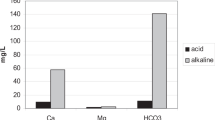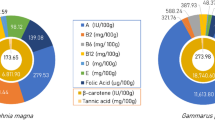Abstract
MINT weed (Salvia reflexa) has been shown to be responsible for heavy losses of stock in Queensland1. Chemical investigation of the plant failed to demonstrate the presence of any of the poisonous principles commonly found in plants. Following on the work of Rimington2 with Tribulus, we were led to investigate the nitrate and nitrite content of S. reflexa, and the possibility that methæmoglobinæmia due to nitrite poisoning would follow the ingestion of the plant. The dried plant was found to contain up to 5 per cent of nitrate calculated as potassium nitrate, and an enzyme is present in the plant capable of reducing nitrate to nitrite, apparently through oxidation of glucose.
This is a preview of subscription content, access via your institution
Access options
Subscribe to this journal
Receive 51 print issues and online access
$199.00 per year
only $3.90 per issue
Buy this article
- Purchase on Springer Link
- Instant access to full article PDF
Prices may be subject to local taxes which are calculated during checkout
Similar content being viewed by others
References
Commonwealth Council for Scientific and Industrial Research. Pamphlet No. 49. Melbourne (1935).
Rimington, C., South African J. Sci., 30, 472 (1933).
Cf. Seekles, L., and Sjollema, B., Arch. wiss. prakt. Tierheilkunde, 65, 331 (1932).
Author information
Authors and Affiliations
Rights and permissions
About this article
Cite this article
WILLIAMS, C., HINES, H. Toxicity of Salvia reflexa. Nature 144, 118–119 (1939). https://doi.org/10.1038/144118b0
Issue Date:
DOI: https://doi.org/10.1038/144118b0
Comments
By submitting a comment you agree to abide by our Terms and Community Guidelines. If you find something abusive or that does not comply with our terms or guidelines please flag it as inappropriate.



